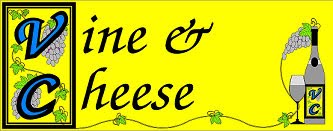In the retail wine business we call those mini-reviews that are taped to wine shelves, shelf talkers. They are meant to both inform and entice the shopper to try that particular bottle. A good one will offer sound objective and pointed observations with a little subjective something that utters "come hither". On September 28-29, 2013, Lettie Teagues wrote about these things in a WSJ article titled, "Wine-Tasting Notes Don't Need to Overflow", which pretty much sums it up but I'll continue to expound on the subject anyway.
Authorship of shelf talkers in my experience is usually anonymous. Teagues, however, knows who writes many of them among her wine writing colleagues and others in the business. I won't name those people here but I will classify them using a couple of generalized categories. We'll call the flowery prose shelf talker writer, F. Scott Fitzgerald, and he's the talented individual who probably feels he missed his calling as a writer of great works. Now he's taking it out on the rest of us who are just shopping for wine and not in the least interested in his narcissistic and tortured verbiage. We'll call the opposite approach, the one that uses the fewest words and most direct commentary, Martin Scorcese, which is a little unfair to the writer since Scorcese tends to make his points in film with blunt instruments. All other shelf talkers are some combination of Scorcese and Fitzgerald.
As I said above, most shelf talkers are anonymously written, sometimes by store employees and sometimes by wine customers courtesy of the internet. These, of course, range from frustrated Scorceses and Fitzgeralds to embarrassingly amateurish efforts that should never be hanging in stores. I never thought about hanging my own tasting observations in this store because as I have said many times, I don't have a great palate. I know what good wine tastes like because of my many years in the business but I have been humbled enough through the years to know I was not blessed that way.
Or am I? Or are you?
Shelf talkers are by definition short, fifty words or less. They should be fresh and personal, yet objective. They should be utilitarian even boring, yet inspirational. They should open the door just a crack to give a glimpse of what's inside without revealing the contents of the thing. I can do that, sort of. The qualities to note objectively include body, color, aroma, oak/steel, tannins/no tannins, flavors on the palate, structure/balance, finish and food affinities. All of that should be objective, but for the palate-challenged among us, the aromas, flavors, and food affinities may be a problem. Let's also own up to our personal biases. Shelf talkers should be affirmative in general; they should sell the product; and they probably should not disagree fundamentally with what most others say about the thing.
Here's the good news on the subject: If you are more of a Scorcese than a Fitzgerald (like most of us), you just may be a budding wine reviewer. Objectivity is key in the areas that matter; then just a little Fitzgerald window dressing to stimulate curiosity completes the mini-review. Since I doubt if any readers here are wine retailers, this may be your wine logbook/diary we're talking about.
On Friday the 24th between 5 and 8pm Tommy Basham joins us with a California Wine tasting with high points in Cabernet Sauvignon because I need some good ones in the store at this time! Please join us.
Thursday, October 23, 2014
Subscribe to:
Post Comments (Atom)




No comments:
Post a Comment